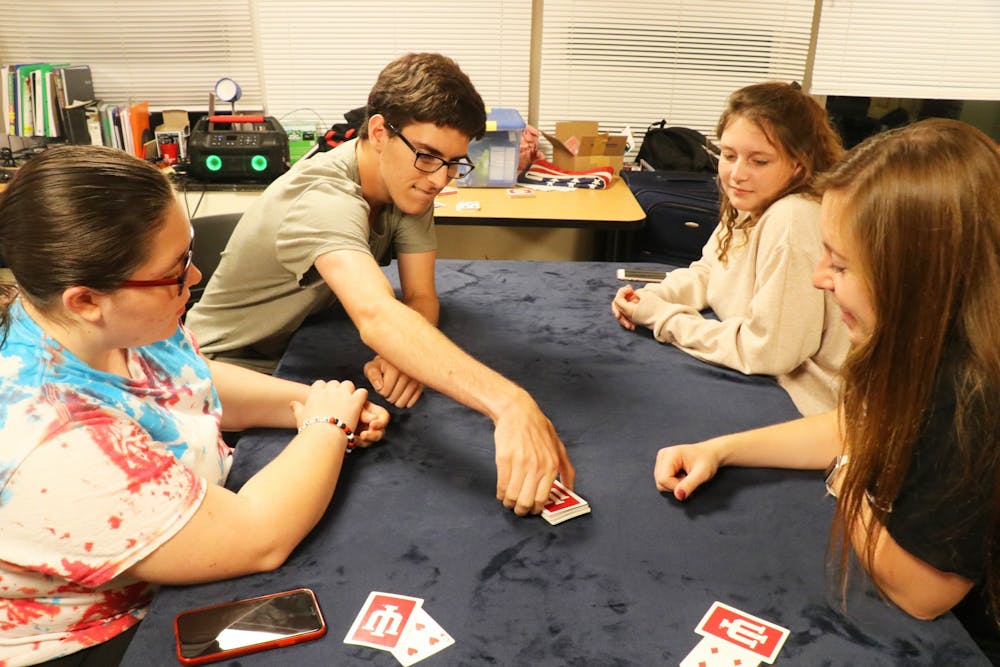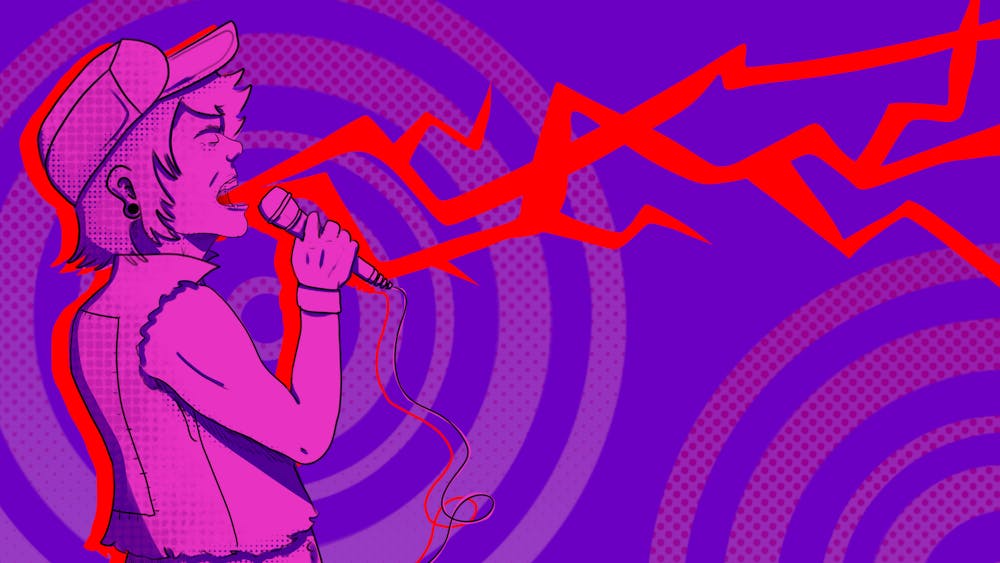IU's meal plans, which are required for all freshmen, will cost $100 more next year, and living in a residence hall will cost 3.8% more. The standard room and board rate will go up 3.5%, with similar increases planned annually for at least four years, adding up to a 15% increase by fall 2023.
This is how it happens: the slow and steady rise of the cost of attendance faster than inflation. Blink and you’ll miss it. The university could, and should, have done more to solicit student feedback before making the decision.
IU’s Board of Trustees voted Thursday to approve next year's prices. The purpose of the rate hikes is to pay for renovation and expansion, according to presentation slides shown at the meeting.
Next year's increases were approved without a public hearing, unlike this year's increases in tuition and mandatory fees, which followed a livestreamed open comment period at a Board of Trustees meeting. The Indiana Commission for Higher Education requires public hearings before increases in tuition and fees but not room and board, IU spokesperson Chuck Carney said.
Thursday's meeting occurred in Indianapolis. The agenda that listed the proposed changes was posted online earlier this month, according to the board's website.
Asking students to watch for online agendas or travel large distances to provide feedback on major rate increases shows a lack of interest in students' voices. Students have lived through years of bed shortages, mold outbreaks and misleading meal plan marketing. Hiking rates without consulting students builds on bad faith.
Students living or eating on campus will help pay for staggering new expenses, including a $99 million residence hall, a $45 million academic health sciences building and renovations of Foster and McNutt residence halls following mold damage, all of which are funded internally, according to IU’s capital planning and facilities website.
Residence hall projects often receive state funding. But IU's goal is to self-fund renovation and expansion projects, including related debt and interest accrued, according to the trustees’ presentation. Part of the burden will fall on students.
The university’s bicentennial year rang in a surge of debt-funded renovation and construction. IU has planned $227.1 million in debt-funded projects between fiscal years 2020 and 2022, according to the presentation. The number was zero for fiscal years 2018 and 2019.
At the very least, students might expect the rate increases would come with solutions to the biggest problems with IU’s housing and dining. But they have little to be optimistic about.
The disingenuous sales scheme for I-BUCKS meal plans, which purport to have large discounts despite offering little or no savings, will continue. Meal plan contracts for next year say the I-BUCKS 60 plan, the most popular plan, lets students “pay 40% of retail prices,” despite in fact having a zero percent effective discount.
IU is removing the word "discount" from meal plan materials, Carney said. The misleading description, however, will remain. The only substantial change is the increase in prices, which doubles last year’s increase. All first-year students are required to purchase a plan unless given an exemption to live off campus.
Another concern is the bed count. After multiple years of bed shortages and overcrowding in dorms, bed numbers will remain relatively static, forecasted to average 12,297 over the next four years, fewer than in the 2018-2019 year.
One hopes the expensive renovations will settle IU’s perennial mold problem for good. Regardless, students would be right to ask why funding for mold-related renovations, something the university ought to take responsibility for, will come from students’ bursar bills.
IU is joining a national trend of universities raising costs of attendance, outpacing inflation and contributing to a growing student debt crisis.
The average cost of tuition, fees, room and board at public four-year universities, adjusted for inflation, has increased more than 20% in the last decade, according to a 2019 College Board report. Annual inflation has averaged less than 2% since 2015, U.S. government data show, much less than IU's proposed 3% to 4% annual increases for room and board. National student debt has surpassed $1.6 trillion, making younger graduates become more susceptible to economic downturns.
The trustees are aware of these facts. Patrick Shoulders, vice chairman of the board, said at the meeting Thursday, “None of us are thrilled with three point whatever when inflation is only 2%."
But the board voted to approve anyway.
Large rate hikes are avoidable. Purdue University, for example, has maintained or decreased the cost of room and board, along with tuition and fees, for eight years. Although budget cuts are not always smart, IU should take note of Purdue’s priority to make education more financially accessible.
Most importantly, IU should offer accessible and widely publicized public hearings before making decisions that could seriously inhibit students’ ability to attend the university. Students deserve to have a say on room and board, especially when costs rise sharply with few visible returns and cover renovations caused by IU’s own negligence.
The university should not be allowed to charge its most controversial debt to our bursar bills. I hope the board does more to invite student feedback next year.
Abby Malala (she/her or they/them) is a senior studying cinema studies. She wants to become a writer (and get paid for it) in the future.
Tom Sweeney (he/him) is a senior studying economics and mathematics and is the treasurer of IU Student Government. He plans to pursue graduate studies in economics.
CORRECTION: A previous version of this column misstated the day the Board of Trustees met and approved the rate increases. The meeting occurred Thursday. The IDS regrets this error.






